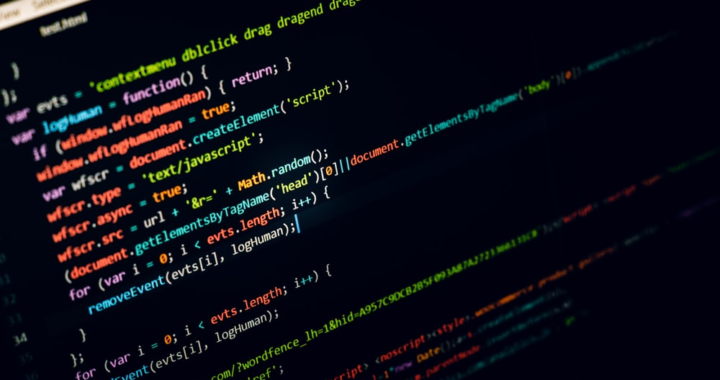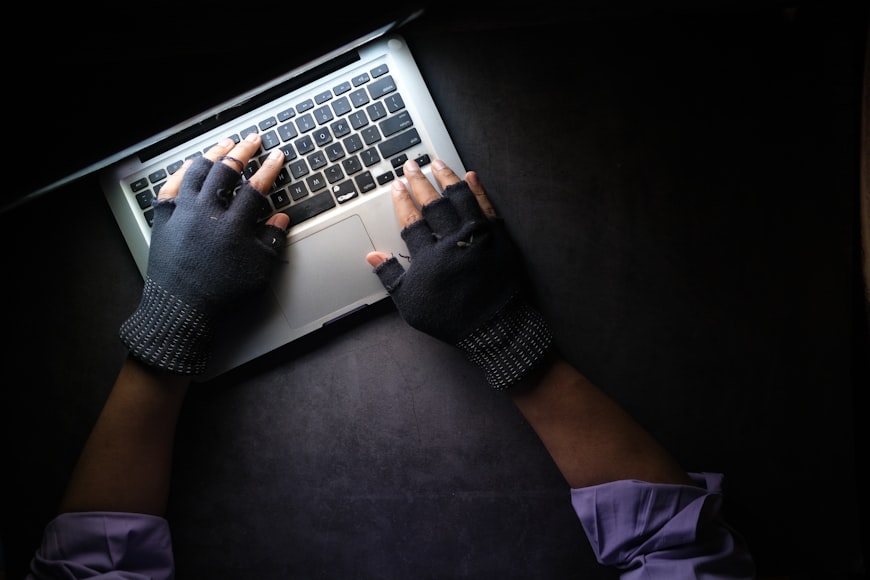The prevalence of digital evidence is on the rise. However, there are still certain risks associated with digital evidence since authentication is necessary where the internet is involved. There are ways to prevent the risk and challenges we face.
Category Archives: Digital Forensic
All You Need to Know About Redaction in Digital Documents
Also known as document sanitizing, redaction is important for organizations and individuals to ensure their sensitive information remains hidden from the outside world. This mostly applies to those in legal, healthcare, financial, and government fields, where data security is of utmost importance.
With the increase of digitization, it has become easier to extract and exploit data for the wrong means. Therefore, a lot has changed in terms of redaction in the modern era to protect sensitive information. Redaction isn’t limited to physical documents but digital data such as images, audio, and video. What was done using a sharpie back in the day is now using artificial intelligence-backed tools and software.
Here’s all you need to know about redaction in digital forensics.
Tips to Protect Digital Evidence from Tampering
Digital forensics has changed how the authorities solve crimes. Its demand is increasing rapidly, and the industry is expected to grow at a CAGR of 10.97% by 2027. While it may offer many opportunities to solve and prevent crimes, digital data is vulnerable to cyber threats. Besides threats, analysts and investigators may also unintentionally tamper with (or alter) the evidence, making it inadmissible in court.
Ways to Use Digital Forensics for Cyber Crime Prevention
Cybercrime attacks are becoming a norm, as evident from the 323,972 attacks in 2021. Almost every other person on the internet fell for a cyberattack. The hack makes individuals vulnerable to losing personal data, financial information, and whatnot. If you have been a victim of cybercrime, then you must know the dangers it entails.
A digital forensic expert can help you identify the source of the attack and how to prevent it. We’re a court-certified digital forensic consultant in FL. Feel free to call us if you need an expert for your case.
Here’s how digital forensics is a great tool for preventing future cyber-attacks.
Benefits of Computer Forensics
Every computer holds a plethora of information in it. From browser history to files on your PC, everything contains pieces of evidence that may help in an investigation. Computers have been used for evidence for years, and credit goes to the forensics team for retrieving and evaluating the necessary information.
For instance, a digital forensic expert’s help is necessary in a hacking case. The hackers use all protocols to hide their identity to steal from individuals and businesses. If you’re doing a criminal investigation of a similar case, then our cyber forensic experts can help you unravel the truth.
Here are the benefits of computer forensics.
The Main Branches of Digital Forensics and Their Applications
With a greater dependence on cloud computing and computer systems, digital forensics now has a strong footprint in the law enforcement avenue. Credit card fraud, cases of child pornography, and audit frauds need ace digital forensic experts to assess and analyze data for court proceedings. Only in 2021, cybercrime incidents were some of the most frequently reported criminal offenses. Crimes like phishing, personal data breach, extortion, and identity theft were reported by the thousands.
To understand the extent to which digital forensics can help you with data analysis and extraction, here’s a closer look at its branches:
Computer Forensics
Previously, the words ‘computer forensics’ and ‘digital forensics’ were used interchangeably. Computer forensics extract, analyze and preserve data for criminal and court proceedings. The branch uses strategies similar to those of data recovery. They also follow some legal guidelines for data extraction.
Network Forensics
This branch of digital forensics focuses on monitoring and assessing computer network traffic for legal evidence, information gathering, or third-party intrusion detection. David Schiffer, a correspondent for Forbes, is quite certain cybercrime issues are bound to exacerbate as organizations grow their networks.
Mobile Device Forensics
The branch covers the recovery of digital evidence from phones using forensic data analysis methods. The term ‘mobile devices’ goes for all devices with GPS, internal memory, and communicative facilities. Some things that mobile forensics are still trying to decode include:
- Locating the cell phone while the mobile is on hibernation mode or is switched off
- Shifts in mobile phone form like changes in the operating system, memory storage, and peripherals like pin connectors
Recovering data from phones can get quite complex. At Eclipse Forensics, our data forensic experts can collect call logs, text messages, deleted pictures, call lists, and more data sets.
Database Forensics
Database forensics is related to metadata. The information can exist in a server’s RAM. During such a case, cyber forensic experts perform a live analysis of RAMs to extract data. A forensic examination of data includes who accessed the database and if data in the system has been tampered with. Organizations across the world have data stored in complex databases that can be analyzed to collect forensic data.
Database forensics can also identify transactions within an application database. Evidence of fraud and wrongdoing may be collected this way.
Contact Eclipse Forensics for Certified Digital Forensic Services
We are pros at uncovering electronic data for courtrooms! To avail our audio forensic and video forensic services, contact us at 9047971866.
Essential Elements of Digital Forensics: A Complete Guide
The field of digital forensics is still an unfamiliar thing for many. There’s still some confusion about data extraction and data analysis. For many businesses, digital forensics can be an integral part of an incident response process. The heavy usage of video recordings, CCTV tapes, audio, and digital data has made the field of digital forensics an important aspect of criminal trials.
While the process of analyzing and preserving digital data may vary from case to case, the process has some basics that most forensic labs follow.
How Digital Forensics Helps in IP Theft Cases
Intellectual property theft is the expression used to describe a situation where someone steals an idea or invention from a company or individual. It also refers to cyber criminals stealing a firm’s trade secrets, trademarks, copyrights, and patents. Unfortunately, identifying IP theft can be challenging in a world where a few clicks can compromise a company’s trade secrets.
Digital forensic experts play a critical role in handling potential IP theft cases effectively. Here’s how cyber forensics are used in IP theft investigations:
Using Forensics to Identify IP Theft
Most IP theft perpetrators are the company’s employees. Thus, asking your IT team to track evidence may raise conflicts of interest or bias. Furthermore, your IT team might not have the right skills and knowledge required to track down the intangible assets. Thus, companies must rely on professional digital forensic engineers to trace and preserve the collected evidence. Here are some effective methods of digital forensics used for handling IP theft cases:
- Use of Devices – a reliable digital forensic team will preserve any crime-related electronic devicesfor the authorities to inspect. They will shut down the access to all related devices upon suspecting an IP theft. The investigation will proceed to identify and harvest data that might help experts determine the crime.
- An In-depth Analysis of Data – a successful digital forensic investigation goes beyond analyzing communication contents and user movement. A detailed examination will show exactly what happened during the cybercrime. Digital forensics addresses the following concerns during an IP theft investigation:
- Did the criminals copy data onto CDs or USBs?
- Was any mass data deleted?
- Where was the USB flash drive used?
- Did they use a wiping program to cover their crime?
- Are there any email communications that indicate a potential IP theft?
- Which devices were used to perform file transfers?
Proving IP Theft
To prove an IP theft, you need digital forensics data from social media platforms, mobile apps, and other digital platforms. While the data drawn from these devices may be diverse, it can allow cyber forensics experts to detect the breach’s time, date, and location. By hiring forensic experts to present your case in a court of law, you’ll better understand the significance of digital forensics in identifying IP theft.
If you’re looking for professional digital forensics consultants in Florida, we can help! At Eclipse Forensics, we handle audio, video, and court-certified forensics at affordable rates. Contact us today to avail our services.
Options for Dealing with the Digital Forensics Backlog
Prosecutors and law enforcement agencies often face a daunting 10-20 month backlog due to a lack of personnel, resources, and storage. This pushes the digital evidence process back significantly. Sadly, the exponential growth of digital evidence and public budgets further delay the process, causing the backlog to last for a long time.
Is outsourcing digital forensic services the best option? Learn more about it through this blog:
1. Don’t Accept the Backlog.
You may accept that digital evidence processes will take several months to give you some actionable intelligence from a device seized at a crime scene. Unfortunately, doing nothing and waiting for the state labs to end the backlog will cost you more money in the long run. Furthermore, you’ll need more investigative resources and surveillance over time while waiting for the state crime labs to process the cell phone evidence. In this context, accepting the time taken to process digital evidence will only cost your firm several dollars and business opportunities.
2. In-house Digital Forensic Lab
While building your own in-house forensic lab may seem tempting, you must have enough time, money, and knowledge to process digital evidence accurately. Building a new lab isn’t the only thing needed to complete all the pending processes. You must also consult professional forensics engineers and data forensic experts to process the large amounts of digital evidence available in the form of voice recorders, cameras, flash drives, mobile phones, GPS devices, hard drives, and more. Thus, consider this option only if you’re certain you’ve gained a good understanding of the digital evidence processes.
3. Outsource Digital Forensic Services
Outsourcing cyber forensic services is an effective and quick way to address your backlog, especially for time-sensitive and complex cases. Fortunately, various cyber forensic experts willing to outsource their services to companies that need them. Professional digital forensic services have the right expertise and knowledge to deal with law enforcement and cross-examination in a court of law.
While many digital forensic engineers available, not all offer the same level of expertise and services as Eclipse Forensics. We are reliable court-certified forensics based in Florida that can help you address your backlog effectively. Contact us now for more details.
Top 3 Mistakes Made On Scene with Digital Evidence
Digital devices have become so omnipresent that almost all crime scenes include at least one or more forms of digital evidence. While a proper digital forensics examination using these devices can solve a crime, it’s often the actions and decisions taken during evidence collection that determine whether the investigation would succeed or not.
Here are some of the biggest mistakes made with digital evidence on a crime scene:
1. Not Isolating the Digital Device from Networks
Securing a device at a crime scene helps cyber forensics experts analyze and investigate its data. However, if they fail to isolate the device from a wireless or a cellular network, the evidence it contains could be at risk.
A mobile that connects to a wireless or cellular network will continue to sync documents, emails, photos, and contacts with cloud-based services, destroying or corrupting digital evidence as a result. This enables the device’s owner to lock or wipe the digital evidence from the device remotely. Therefore, digital forensic experts must isolate mobile phones and laptops from Bluetooth, cellular, or wireless connectivity to examine them forensically.
2. Powering on the PC
This is another grave mistake that most investigators make at the crime scene. Upon seizing a computer, you must not give in to the temptation of switching it on in search of evidence. That’s because once you log into a computer, it will check for software updates, run a virus check, connect to a network, and resume its background processes. Once the computer is connected to the Internet, the information it contains might be modified or deleted remotely.
Professional forensic engineers have the right equipment to analyze digital evidence without turning on the computer. Therefore, businesses must always hire experts to acquire and restore data.
3. Not Labeling Digital Evidence
Amateur investigators often fail to identify and label the various forms of digital evidence. While a desktop computer might seem like a single device, expert digital forensics services will identify and label every single component of the device that stores data as digital evidence.
Contact Eclipse Forensics in Florida if you’re looking for professional and reliable digital forensics experts. Our team is highly-skilled and knowledgeable in processing, examining, and presenting digital evidence in a court of law. Call us today for more details.












